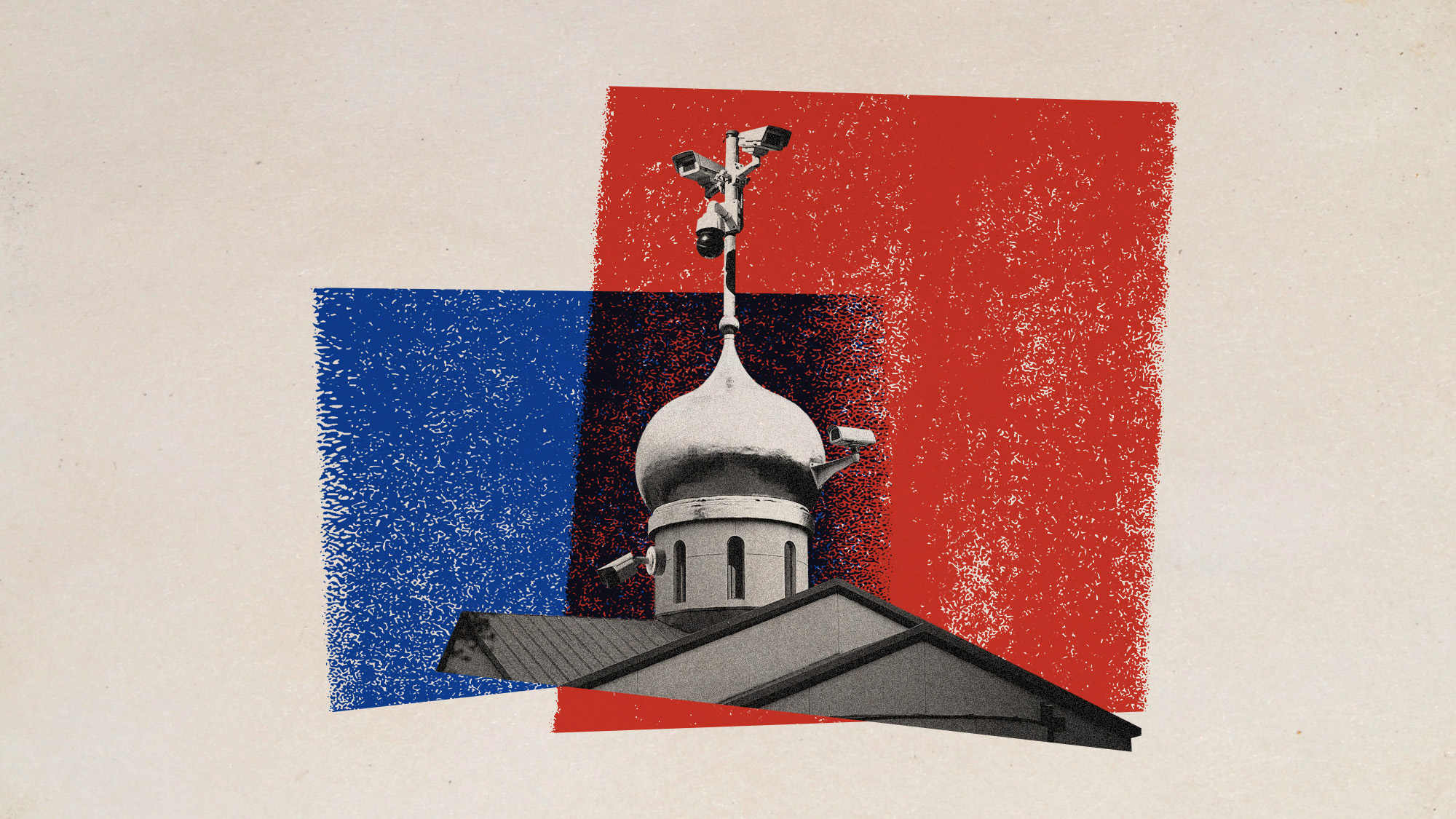The Swedish church at the centre of a Russian spy drama
The Russian Orthodox Church is accused of being an 'active tool' of Moscow's 'soft power'

A free daily email with the biggest news stories of the day – and the best features from TheWeek.com
You are now subscribed
Your newsletter sign-up was successful
Swedish intelligence services believe that one of the country's Russian Orthodox churches could be a base for spying.
Almost everything about the "onion-domed" church beside Västerås Airport, about an hour from Stockholm, "seems odd", said France 24.
The Church of the Holy Mother of God of Kazan is "spectacular", but there is "something unwelcoming" about its reflective, dark-tinted windows that "make it hard to glimpse inside". Then there is the "high steel fence", security cameras and "no trespassing!" sign. A local told reporters that the church "doesn't seem to host many church activities apart from the two weekly services".
The Week
Escape your echo chamber. Get the facts behind the news, plus analysis from multiple perspectives.

Sign up for The Week's Free Newsletters
From our morning news briefing to a weekly Good News Newsletter, get the best of The Week delivered directly to your inbox.
From our morning news briefing to a weekly Good News Newsletter, get the best of The Week delivered directly to your inbox.
Potential threat
To an increasingly "vocal group of critics", the church is seen as a "potential threat" to Sweden's national security due to its "sensitive location", said Politico. When Sweden's defence forces undertake exercises at the airport, they do so "under possible surveillance from the church", Markus Göransson, a researcher focusing on Russia at the Swedish Defence University, told the outlet.
Almost a neighbour of a strategically important airport, the church is also close to a water treatment works, several energy companies and a major motorway linking Stockholm to Norway.
Neither the Russian Embassy in Stockholm nor the church in Västerås responded to emailed requests for comment.
Active tool
This is far from the first time the Russian Orthodox Church has been accused of acting as the eyes and ears of the Kremlin overseas. It is emerging as a "potential conduit" for Moscow's "covert actions" abroad, said Politico.
A free daily email with the biggest news stories of the day – and the best features from TheWeek.com
In 2022, Ukrainian security forces raided a monastery in Kyiv to disrupt the "intelligence operations" they claimed were based there. The following year, Bulgaria expelled three priests employed by the Russian Orthodox Church, citing national security concerns.
Then, in April of this year, Czech intelligence services claimed a Russian Orthodox church in a small Czech spa town was being used by Russian agents for "covert meetings" and "influence operations" aimed at "destabilising" the EU, said Euractiv.
Authorities in a growing number of countries are turning a "critical eye" toward the presence of the Russian Orthodox Church, said Radio Free Europe. It's suspected that rather than being an "exclusively religious, spiritual organisation", it's an "active tool" of Russian government "soft power".
Chas Newkey-Burden has been part of The Week Digital team for more than a decade and a journalist for 25 years, starting out on the irreverent football weekly 90 Minutes, before moving to lifestyle magazines Loaded and Attitude. He was a columnist for The Big Issue and landed a world exclusive with David Beckham that became the weekly magazine’s bestselling issue. He now writes regularly for The Guardian, The Telegraph, The Independent, Metro, FourFourTwo and the i new site. He is also the author of a number of non-fiction books.
-
 Colbert, CBS spar over FCC and Talarico interview
Colbert, CBS spar over FCC and Talarico interviewSpeed Read The late night host said CBS pulled his interview with Democratic Texas state representative James Talarico over new FCC rules about political interviews
-
 The Week contest: AI bellyaching
The Week contest: AI bellyachingPuzzles and Quizzes
-
 Political cartoons for February 18
Political cartoons for February 18Cartoons Wednesday’s political cartoons include the DOW, human replacement, and more
-
 Alexei Navalny and Russia’s history of poisonings
Alexei Navalny and Russia’s history of poisoningsThe Explainer ‘Precise’ and ‘deniable’, the Kremlin’s use of poison to silence critics has become a ’geopolitical signature flourish’
-
 US, Russia restart military dialogue as treaty ends
US, Russia restart military dialogue as treaty endsSpeed Read New START was the last remaining nuclear arms treaty between the countries
-
 What happens now that the US-Russia nuclear treaty is expiring?
What happens now that the US-Russia nuclear treaty is expiring?TODAY’S BIG QUESTION Weapons experts worry that the end of the New START treaty marks the beginning of a 21st-century atomic arms race
-
 Ukraine, US and Russia: do rare trilateral talks mean peace is possible?
Ukraine, US and Russia: do rare trilateral talks mean peace is possible?Rush to meet signals potential agreement but scepticism of Russian motives remain
-
 How oil tankers have been weaponised
How oil tankers have been weaponisedThe Explainer The seizure of a Russian tanker in the Atlantic last week has drawn attention to the country’s clandestine shipping network
-
 The rise of the spymaster: a ‘tectonic shift’ in Ukraine’s politics
The rise of the spymaster: a ‘tectonic shift’ in Ukraine’s politicsIn the Spotlight President Zelenskyy’s new chief of staff, former head of military intelligence Kyrylo Budanov, is widely viewed as a potential successor
-
 US nabs ‘shadow’ tanker claimed by Russia
US nabs ‘shadow’ tanker claimed by RussiaSpeed Read The ship was one of two vessels seized by the US military
-
 What will happen in 2026? Predictions and events
What will happen in 2026? Predictions and eventsIn Depth The new year could bring peace in Ukraine or war in Venezuela, as Donald Trump prepares to host a highly politicised World Cup and Nasa returns to the Moon